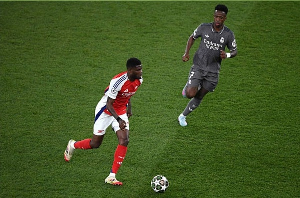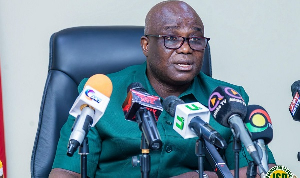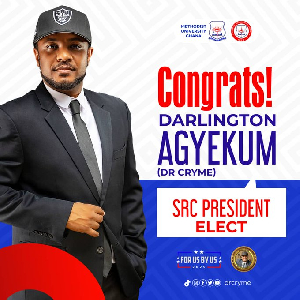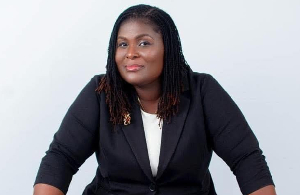The Analysis of distinctive capabilities of Unilever, (Ghana) in Ghana’s closed economy of the 19980s - 1990s and implications for business strategy.
By
Francis Kwaku Egu
Introduction
Capabilities refer to the firm's ability to utilize its resources effectively. Capabilities according to Porter are embedded in the routines of an organization. They are not easily documented as procedures and this makes it difficult for competitors to replicate. A firm's resources and capabilities together form its distinctive competencies. These competencies Porter Explained enable innovation; efficiency, quality, and customer responsiveness, all of which can be leveraged to create a cost advantage or a differentiation advantage (Porter 1985}. Porter further argued that in order for a firm to develop a competitive advantage it must have resources and capabilities that are superior to those of its competitors. The issue according to him is that without this superiority, competitors simply could replicate what the firm was doing and any advantage quickly would disappear.
Strategy
Strategy on the other hand is described by Johnson and Scholes (2002) as matching the resources and the activities of an organisation to the environment in which its operates
It is based on the above assumptions that the activities of Unilever Ghana Ltd will be analysed. Unilever Ghana is a company, which has displayed its capabilities in the Ghanaian turbulent macroeconomic environment to the chagrin of many financial analysts in Ghana.
Unilever Ghana was established in 1948. It manufactures and markets detergents, textiles, foods and personal products at its Lever Brothers factory in Tema a port city in southern Ghana. It was among one of the early public company listed on the Ghana Stock Exchange with 66 % of its shares owned by Unilever PLC, and the remaining 34 % by public portfolio investors, including some 11,000 Ghanaians. (Unilever annual report (2002)
Distinctive Capabilities of Unilever
Resources
Unilever Ghana as a company is so well endowed with resources. This places it strategically above its major competitors. The company have enough physical, human, as well as financial resources. The financial resource of the company is one of its powerful tools. So in the early part of the 1980s when the Government of Ghana embarked upon deregulation in the public sector monopolies. Government shares in most state own enterprises were sold out to private businesses and individuals.
Unilever Ghana Ltd acquired Government of Ghana oil palm plantation at Benso in the Western region of Ghana. The oil palm is the main raw materials, which the company use to produce one it is main product the Key bar soap laundry soap).
The company did not only spend huge resources in developing it into a first class one. Buy by acquiring this plantation the company took over the control of the supply of the raw material, which hitherto was quite erratic and unreliable. Agriculture in Ghana just like any developing country is rain fed. Failure in the Climate most often affects farm yields, which thus affects supplies of raw material. Unilever Ghana Ltd in this circumstance tried to control the environment. This strategic decision, which the company took, places it above its major competitor in the Soap industry, because its competitors still depended on local farmers for their supplies.
Merger
The Textile industry in Ghana prior to deregulation in Ghana was highly fragmented. Foreign companies such as Spintex And Akosombo textiles controlled the textile market. There were also small- scale local producers who produce local fabric called ‘tie & dye’ and ‘batik’. However there was a huge demand for these fabrics. Local producers and the few foreign companies were unable to meet demand. This fragmentation presented a good opportunity, which Unilever capitalised on. The company formed a merger with UAC Ghana Ltd in 1992. UAC Ghana is a company, which has been in the textile industry in Ghana for a long time and has good textile brands that have high positioning in the Ghanaian target market. Unilever retained the brand and went ahead to up grade the quality of the textile. Unilever thus gain competitive advantage over the other foreign companies by capturing a high market share.
The introduction of African Growth Opportunity Act (AGOA) by the United States of America gave Unilever the opportunity to export its product to the USA under special tariff arrangement between the government of Ghana and that of the USA.
Knowledge of Target market
The company has in-depth knowledge of the Ghanaian market, which it exploited to its advantage. Based on this knowledge the company mapped out its target market by considering income level of the people, their occupation, gender, and, ethnic groups. It was able to realise a large target market. The company saw that there are about 8 million potential consumers from the Ghanaian populace ready to purchase their textile products and other products (Unilever Annual report 2000).
Aside of the above the company also had enough knowledge of other markets in the West African Sub regions which constitute the Economic Committee of West African States ( ECOWAS). The major competitor of Unilever in the textile industry as that time was Akosombo Textiles Ltd. This company unlike Unilever was content with the local market has not been able to exploit (Ghana Investment Centre Report -2002)
Relationship Building
Relationship Building and customer loyalties as marketing strategies were not common phenomenon in Ghanaian business cycles in most part of the 1980s. Most companies in Ghana were more interested in carrying out vigorous advertisement in attempts to sell their products. The companies were more interested in mounting billboards as wells as TV and radio adverts. Unilever Ghana strategically shifted from using advertising and promotional efforts to acquire new customers. It designed its advertising and promotional efforts in way to retain its customers and to increase the amount of money the customers spend with the company. The company through its vigorous market research saw that the Ghanaian consumers see so much advertising beamed by Ghana televisions and radios and have learned to ignore much of it. As a result, it has become more difficult to attract new customers.
The company therefore decided to service their existing customers by introducing more innovative mechanisms like promotional sales. In the year 2000 the company launched what it called ‘gold bar key soap’ promotion. In this promotion Unilever put a lot of miniature gold keys in the bar soaps. Any customer who wins a gold key in any bar soap purchased redeemed it for a fee. There were other promotional drives like reduction sales. ‘Buy one get one free’ etc. This caught up so well with their customers. These promotional sales did not only boost sales but also created customer loyalty in the target market.
Product Differentiation
The logic of differentiation strategy requires that a firm choose attributes in which to differentiate itself from its rival. Portal 1985.That was what exactly the strategy Unilever used in producing and marketing the bar key soap. The bar ‘Key soap’ is a laundry soap which was launched by Unilever in the early 1960s. It is a brand with a very high position in the minds of the Ghanaian consumer, however towards the end of 1976, PZ Ghana Ltd, major competitor of Unilever introduced similar bar soap known as ‘duck’ bar soap. There was also the ‘Apeno’ soap produce by a local Ghanaian entrepreneur, Apia Menka. Unilever strive to make the Key bar soap unique and different from the duck bar or the Apeno soap. The company made the key soap harder and solid, gave it some rugged features that gave it a different look from the other soaps. The quality of the key soap was also consistent.
Apart from the above, in spite of the huge and well-defined target market Unilever had and which it served far better, than its major competitors in the sales of laundry soap. Unilever differentiated itself by engaging in promotional drives by sponsoring some popular Ghanaian TV programmes. One major popular TV Programme it sponsored was the concert party programme, which became known as ‘Key Soap Concert Party’.
Value of Focus
Unilever did not underestimate the value of focus - the company sold specific products to specific groups. For in stance the key soap was sold to the Ghanaian low-income earners while the more expensive bathing soap like Lux, Rexona, Fa (which they produce under patent from the parent companies) was sold to high-income earners. The four and five star hotels in the capital city of Accra became the target for their expensive detergents and their cosmetic products while the cheaper detergents were sold to government institutions like the schools and colleges.
The two basic components that affect Unilever product pricing are costs of its manufacture and competition in selling. It found it unprofitable to sell their products below their production costs and unfeasible to sell them at a price higher than what its major competitors are offering for their products. Unilever enjoys an advantage of having a high position for most of its products in the minds of the Ghanaian consumers, so they will not like to lose that position to their competitors by increasing their prices. So they always keep their prices low.
Marketing & Sales
One remarkable means of marketing their product which customers’ value is through direct selling. There was attempt to focus on one customer at a time. This kind of individual attention though makes selling expensive for Unilever; it was however effective. Sale persons of Unilever moved from the various market centres and busy streets of Accra in their company vans selling the company’s products to shoppers. The company also used these sales people to sell their complex products, which require detailed explanation, customized application, or careful negotiation over price and payment plans. The salespersons often helped the customers identify problems and assisted buyers in making decisions. In fact Unilever outclassed its major competitors like nestle in sales methods
Michael Porter argued that to analyze the specific activities through which firms can create a competitive advantage, it is useful to model the firm as a chain of value-creating activities. He identified a set of interrelated generic activities common to a wide range of firms. The resulting model becomes the value chain. The goal of these activities is to create value that exceeds the cost of providing the product or service, thus generating a profit margin. This was exactly true in the case of the activities of Unilever Ghana. (Porter 2002)
Customer support
The Company clearly understood that customer support enhances the value of the organization’s products. The company therefore developed proactive methods for understanding what the Ghanaian customers like and dislike. In 2000 the company institutes the following measures at top management level spearheaded by the CEO.
1. Top management provided evidence of communicating to the organization the importance of meeting customer requirements.
2. They also ensured that customer requirements are determined and met in order to enhance customer satisfaction.
3. They monitored information relating to customer perception as to whether it's met customer requirements
They took some measures in identifying more prospective customers and those that company lost to it competitor PZ and Nestle Ghana Ltd in the 1980s during the Military take over. Most of these customers were lost as a result of the fact that Unilever Ghana could not meet the demand of the market as a result of shortage of raw materials. The shortage came as a result of bad government policies introduced by the military rulers
Outbound logistics
Unilever has as a priority to get its finished products to the customer, provided adequate warehousing for its products and make sure orders are delivered on time. Products of the company were distributed to wholesalers in large quantities. These wholesalers were located in urban centres like Accra, Kumasi, Takoradi etc in Ghana. The wholesalers sold their products to the retailers, who are located in remote and rural areas of Ghana. Some retail businesses in Ghana have grown so large, that they have found it more profitable to bypass the wholesaler and deal directly with the Unilever or Unilever sale agents. The Wholesalers have responded to this trend by changing their operations to move goods more quickly to large retailers and at lower prices.
Unilever foundations
The launching of foundations was management strategy use by Unilever to market their products to government institutions, in the various sectors of the economy. In 1999 Unilever launched a foundation, which concentrates on areas identified as those in which Unilever can best support Ghana’s aim of becoming a middle income economy by 2020. These areas were education, health, technology, science and the development of business enterprise. (Unilever Annual report 2002).
The launching of the foundations caught on well with government organisation in the sectors benefiting from the foundation. There gradually started doing business with Unilever, and the company took most businesses that held by its.
Appraisals
One major set back for Unilever is that it has no good mechanism to track down results and monitor changes in the environment. Ghanaian macroeconomic environment (just like macroeconomic environment of any developing country) is so turbulent and unpredictable. High inflationary level and the high depreciation of the Ghanaian currency (the cedi) is common feature of the market. For instance in 2000 inflation in Ghana was said to be around 57%. Apart from that the currency also depreciated terribly against the USA dollar and the British pound. These affected the Price level of some of their products. The prices skyrocketed placing them beyond the purchasing power of their customers. It resulted in the noose diving of their sales. (Unilever Annual report -2000)
Another main shortfall of Unilever is its inability to acquire a very viable state owned food-processing company when it was put on divesture. Unilever could not only have gained competitive advantage in the food market in Ghana but also obtained greater market share on the market at a less cost. The divested company was acquired by a foreign investor and was renamed Ghana Food Manufacturing Company (GAFCO). GAFCO became a major competitor to Unilever in the production of cooking oil. It gained a high market share in Ghana in the sale of cooking oil. The company’s cooking oil ‘Sankofa’ was a high brand with a better position in the mind of the Ghanaian consumer as compare with Unilever brands the ‘frytol’. In fact Sankofa’ means go back to your root. So Ghanaians will really love to stick to their roots.
The above not withstanding Unilever Ghana was able to sustain its profits. The profit of the company as reported in the annual report of 2002 exceeded the average especially in the soap industry. This thus gave it a competitive advantage over its rivals. According to Porter the goal of most business strategy is to achieve a sustainable competitive advantage, and that was exactly what Unilever Ghana did. Unilever Ghana as compare to its major competitor in the soap industry was able to deliver the key soap at lower cost (cost advantage) on the Ghanaian market. Apart from that it also added several benefits to the key soap that exceeded that of the duck bar soap. (differentiation advantage).
CONCLUSION
Unilever Ghana Ltd I must say has been successful in its strategies in Ghana. It was able to segment the Ghanaian market properly. It did a good job by identifying a good market target. The products of Unilever gained high positioning in the minds of the Ghanaian consumers as compare to that of their competitors.
Francis Kwaku Egu -MBA ,Finance UK
PhD in Finance: Student, London- UK
frankueuk@yahoo.co.uk














